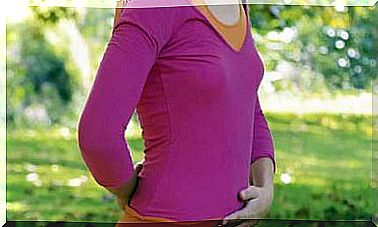Natural Fertility Plan In 3 Months
Many different processes intervene in our fertility. Being in a very good moment on a mental and health level will help us conceive the baby.

Thinking about getting pregnant? Are you trying now and it doesn’t come? Some habits of today’s life make it more difficult, but with proper planning and help it will be much easier and healthier.
Improve your fertility naturally in 3 months
If we start working 3 months before trying to conceive we will have the minimum time necessary to cleanse and strengthen the partner’s body, both physically and mentally.
For her
- Go to the doctor and get an analysis : gynecological history, thyroid, iron and ferritin or cholesterol. These parameters can influence your fertility and you should know them.
- Take prenatal supplements : folic acid, vitamin D, DHA (and vitamin B12 if you are vegan). If you take other supplements, let your doctor know and stop taking them.
- Consume an abundant amount and variety of green leafy vegetables daily , in this way you will know that you are also increasing your levels of folic acid with your diet.
- Increase fertile fats. Include in your daily diet avocado, coconut oil, walnuts, raw almonds, flax and chia seeds, or cold pressed olive oil.
For him
- Consume a green smoothie every day to increase antioxidants, reduce free radicals and protect the genetic material of sperm and improve its quality.
- Include 1 tablespoon of seeds (chia, flax, sunflower, toasted sesame …) in your meals, to increase the levels of selenium and zinc, essential for the synthesis of sperm.
- Take coenzyme Q10 supplements with breakfast (about 100-200 mg), to improve sperm quality and motility. It is also found in foods of plant origin.
- Do not use the laptop on your lap because excess heat on the genitals affects the quality and quantity of sperm. Do not spend more than 2 hours with the laptop in that position.
For both
- There are adaptogenic plants, such as ashwagandha, that help reduce stress and anxiety caused by an unborn baby. 300-500 mg / day is recommended, better in the morning.
- Reduce caffeine to no more than one coffee a day, quit smoking and avoid smoky environments, don’t consume any alcohol, and commit to getting 8 hours of sleep every day.
- Hydrate yourselves. Water is essential for the care of our cells. If you forget to drink daily, create a reminder on your mobile phone every 2 or 3 hours. The ideal is to drink 8 glasses a day.
- Get exercise. Start at least 3 months before looking for the baby. And do it at least 3 hours / week. Try not to make the activities competitive.
Vitamin D, don’t forget to sunbathe!
Vitamin D is known for its importance in bone mineralization due to its metabolic function of calcium and phosphorus.
Several studies, however, have shown that it also modulates reproductive processes, making it a relevant factor in infertility therapies in women and men. Women and men with lower blood levels of vitamin D often have difficulty conceiving, according to the Journal of Human Reproductive Sciences.
The antimullerian hormone is responsible for the longer maintenance of the ovarian reserve (the available eggs that each woman has) and vitamin D acts on its production.
The quality of semen and testosterone levels are positively associated with obtaining sufficient vitamin B.
Foods that contain vitamin D (fatty fish, eggs, and to a lesser extent dairy products and some mushrooms) are very few. Fortunately, when our skin is exposed to sunlight for 20 minutes in winter and 5 minutes in summer it is capable of manufacturing it. Even so, supplementation is recommended, especially in winter, since we do not usually reach the dose of 2,000 units per day just by sunbathing.
Walking against stress
When women decide to open up to motherhood, we do so after decades of contraception (hormonal or barrier) and sometimes we do not know the importance of introducing positive changes in our life habits months before starting the search for pregnancy.
In addition, to the daily stress of urban life we add the stress generated by a baby that takes time to arrive. This situation translates biochemically into an increase in the concentration of circulating adrenaline and cortisol, which can cause imbalances in estrogen levels.
A habit as simple as brisk walking for about 30 minutes each day lowers those hormonal levels in the blood and improves our fertility conditions.









